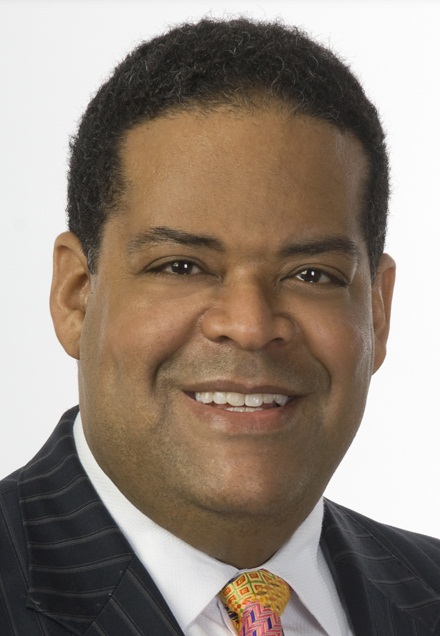From its beginning in the late 1970s as a mechanism for setting criminal and civil penalties for illegal and illicit payments made by U.S. corporations and nationals to foreign officials, the U.S. Foreign Corrupt Practices Act (FCPA or “the Act”) has grown into one of the U.S. enforcement agencies’ biggest sticks with which to combat and enforce ethical conduct within the global marketplace. For public and private participants in exports, international transportation and logistics, manufacturing and business around the globe, the FCPA has some effect on how, where and when you engage in business. The FCPA remains the U.S. government’s means of reaching far and wide to enforce U.S. law against U.S. corporations and U.S. nationals. With increased enforcement, growing fines and penalties and increased actions seeking criminal sentencing, what once started slowly and only affecting a handful of entities 10 years ago is now a behemoth and the U.S. government’s leading enforcement tool.
As business leaders and global market participants should know — and have policies and procedures in place to implement and sustain — the FCPA prohibits bribery of non-U.S. public officials, establishes requirements for recordkeeping, and contains certain accounting requirements affecting companies with registered securities that fall within the jurisdiction of the Security and Exchange Commission (SEC). The FCPA applies to any individual, firm, officer, director, employee or agent of a firm, and any stockholder acting on behalf of a firm, and generally prohibits the payment of bribes to foreign officials to obtain business. Specifically, under the FCPA, it is unlawful to “corruptly [do an act] in furtherance of an offer, payment, promise to pay or authorization of the payment of any money, or offer, gift, promise to give or authorization of the giving of anything of value” to “any foreign official … to assist … in obtaining or retaining business.” The FCPA applies to “issuers,” “domestic concerns” and individuals who violate the FCPA while within the territory of the United States and applies to the officers, employees, agents, representatives and third parties acting on behalf of those individuals or entities subject to the FCPA. In summary, the FCPA is a device by which the United States can infuse ethical conduct and behavior into U.S. persons and entities in their business dealings outside of the United States and through which it can seek to penalize them at home.
The FCPA has had an enormous impact on how U.S. companies do business abroad. Violations of the Act have resulted in companies paying fines well into the millions — and even billions — of dollars and resulted in individuals being sentenced to federal prison for five years or more. Potential sanctions also include disqualification from U.S. government procurement contracting and denial of export licenses. Furthermore, the Department of Justice (DOJ) or SEC has brought civil actions to enjoin an act or practice whenever it appears the company is in violation of the anti-bribery provisions of the Act. The tangible result is that what was once accepted as industry custom is now clearly grounds for criminal prosecution, disgorgement of profits and massive fines and penalties. Yet even with the FCPA being in force and effect for more than 25 years, with the last 10 of which seeing the most aggressive increase and expansion of the U.S. government’s utilization of the FCPA as an enforcement tool, many business entities, companies and corporate officers, managers, employees and agents continue to test the water to no avail. So what remains as the key considerations for global market participants when it comes to FCPA compliance are compliance, training and culture.
The primary factor to remember is that the FCPA is premised in large part on self-regulation. This means that your company should create a set of best practices to ensure that company representatives, employees and executives are conducting themselves in a manner consistent with compliance with the Act. While your company spends time and energy ensuring that local customs are adhered to, you will also want to have a system for assessing the business landscape and how to avoid those conspicuous and unwritten practices that the FCPA is designed to deter and punish. This is where a robust yet strategic compliance plan is vital.
In creating a strong and sustainable compliance program with applicable best practices and procedures, your company will want to begin with the basics. Engage FCPA partners to help educate your team on compliance, develop and implement a compliance program that is driven from the top-down and bottom-up and is integrated within the critical areas of your organization (i.e., officers, managers, accounting, recordkeeping and point-of-contact professionals). Learn about the local customs and traditions for conducting business in a foreign location. It is crucial to know about the environment where the company and personnel are conducting business and how the business operations fit into that foreign market. From the FCPA compliance program/plan, the company will then want to create and implement training practices that educate and certify all company employees, from the Board of Directors to those working at ground level, on their familiarity and knowledge regarding the FCPA policy.
Ensuring that the company’s employees, agents and representatives are familiar with and adhere to the FCPA policy in their business activities, this demonstrates proactive steps to avoid problems and can serve as a mitigating factor should problems arise. The company should establish internal programs, audits, monitors and systems for detecting prohibited conduct and respond to any prohibited conduct quickly and succinctly. More importantly, the company must train all personnel on using these internal systems and controls, and it must understand the importance of identifying, responding to and disclosing potential violations, breakdowns in the system and perceived or real risks that may be present. All company employees must be made aware of the reporting system and must be made aware that there will be no reprisals or retribution for reporting violations or potential issues. When training, make sure to include at a minimum your top executives, personnel who are in a position to solicit business, deal with foreign officials or engage intermediaries involved with government business, and company finance personnel. Training must be regular, consistent and flexible to the ever-changing market, increased enforcement trends and increased scrutiny.
Above all, it is important that adherence to and compliance with the FCPA begin at the top and are driven throughout the company by not only senior-level executives, but also middle managers and supervisors who have the most direct and day-to-day interaction with front-line staff and employees. A company can minimize the risk that it will commit an FCPA violation and place itself in the best position to respond to a government inquiry by establishing an ethical and compliance bar that is set very high. Above all, do not let your company bury its head in the sand; ensure that you are appropriately equipped to identify red flags and to respond quickly and effectively. A culture always focused on compliance and the most ethical conduct will always be proactive and forward thinking in adherence to the FCPA. Just as a company analyzes profits and loss and market trends, so too must it commit itself to a culture that promotes FCPA compliance in all of its business endeavors globally and at home in the United States.
The FCPA remains the big stick by which the U.S. government can enforce its laws. Further, it remains a precarious landscape for U.S. companies that do business abroad as to how to avoid ever-present pitfalls and problems that arise when trying do business outside of the United States. As the world shrinks because of the growth of global trade, capital markets, technology and expanding provisions of services, U.S. companies that serve the world will have to implement safeguards and measures that minimize, if not negate, criminal conduct and provide mitigating factors and defenses should the power of the FCPA be invoked against them. While many companies talk the talk about the FCPA, recent increases in enforcement by the DOJ clearly demonstrate that not as many are walking the walk. And with no end in sight regarding the U.S. government’s utilization of the FCPA as its primary enforcement tool in the global marketplace, there is no easing up when it comes to FCPA compliance. Any company or individual that may have thought the FCPA was an enforcement fad, or was only applicable to the largest businesses, is, and remains, misguided. Whether your business requires docking in foreign ports of call, exports to foreign markets or simply having to meet the customer where he or she lives, business can be done as usual without placing the company in the unusual position of defending against a civil or criminal enforcement action. However, it must start with FCPA compliance.










